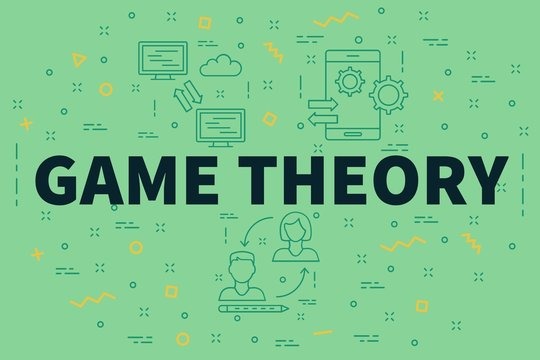
Game theory is a mathematical framework designed to study strategic interactions between rational decision-makers. These decision-makers, often referred to as players, engage in games with predefined rules, strategies, and outcomes. While games can be as simple as rock-paper-scissors or as complex as international negotiations, game theory helps us model, analyze, and predict the behavior of participants.
Key Concepts:
- Players and Strategies:
- In any game, participants are known as players. Each player has a set of possible actions or strategies they can choose from.
- Strategies are crucial as they determine the outcome of the game based on the choices made by all players.
- Payoffs and Utility:
- Payoffs represent the benefits or costs associated with specific outcomes in a game.
- Utility is a measure of satisfaction or desirability associated with a particular outcome for a player.
- Normal Form and Extensive Form:
- Normal-form games are represented by matrices, where players simultaneously choose their strategies.
- Extensive-form games involve a sequence of moves and decisions, creating a tree-like structure to represent the game.
Real-world Applications:
- Economics:
- Game theory is widely applied in economics to analyze market behavior, pricing strategies, and competition among firms.
- Political Science:
- Understanding strategic decision-making is essential in political science, where game theory helps model elections, negotiations, and conflict resolution.
- Biology:
- Evolutionary game theory explores how strategies evolve in biological systems, shedding light on phenomena like cooperation and competition in nature.
Why Students Should Care:
- Critical Thinking:
- Game theory encourages analytical thinking and problem-solving skills by requiring students to anticipate the actions of others.
- Decision-Making Skills:
- Students can apply game theory concepts to everyday scenarios, enhancing their ability to make informed decisions.
- Interdisciplinary Connections:
- Game theory extends beyond mathematics, fostering connections with economics, political science, computer science, and more.
Now let us learn about the Pythagoras’ theorem and it’s application


